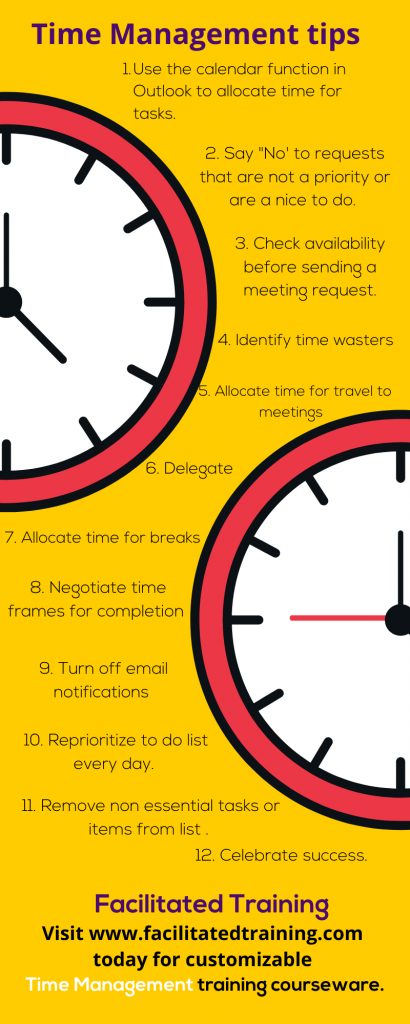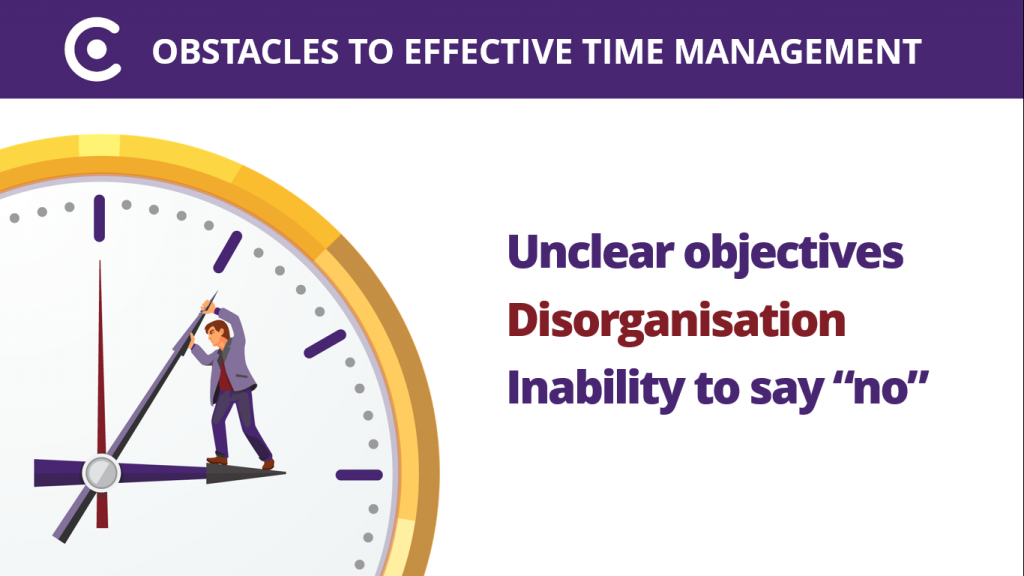Work Smarter, Not Harder: 13 Time Management Tips that will Change the way you work.
Your day, just like everyone else’s, is only 24 hours. Yet somehow certain people seem to be able to squeeze more from that time than others. What it all comes down to is time management—how you choose to plan, prioritise, and spend the hours you have. This is called time management.
So, what is time management?
“Time management” is the way we decide to utilise our time to maximise our productivity in achieving specific long-term goals.
If you are unable to manage your time effectively, you could experience undesirable consequences such as:
- Missed deadlines
- Poor work quality
- Higher stress levels
- Work imbalance
- Lead to a burnout
- Conflict within personal relationships
- Performance management
With effective time management, employees can easily manage their hours to the best effect. When things go as per the plan, employees tend to be more creative, happier, and less prone to burnout at work. Time management training is beneficial to employees at all levels in the workplace.
What are time management skills?
Some people seem to have enough time to do everything they want to while others are always switching from task to task. This means that one who does everything they want to use their time more effectively and practice excellent time management skills. Time management skills are a variety of skills that help to manage time well.
Time management skills include:
- Staying organised
- Prioritising what you need to accomplish
- Setting goals clearly
- Strong communication skills
- Effectively planning out the day
- Practising delegating tasks
Here are 13 more time management tips to help you manage time better:
-
Discover your zone
You must have noticed that at specific hours you are as focused as a laser and you are more productive. It happens when your mind is in complete harmony with the external conditions. Some call it ‘flow’ while others refer to it as their ‘zone’. Some people are morning people, others afternoon or evening. Identify which time works best for you, and allocate critical activities for these times.
-
Track Your Time Spent
When you start to track your time, you’re more aware of how you spend your time. For example, you can set a simple countdown timer to make sure that you finish a task within a period of time, say 30 minutes or 1 hour. The time pressure can push you to stay focused and work more efficiently.
Another technique is called the Pomodoro technique. The Pomodoro Technique is a time management method developed by Francesco Cirillo in the late 1980s. The method uses a timer to break down work into intervals, traditionally 25 minutes in length, separated by short breaks. And after completing four Pomodoros, you take a more extended break—usually 15 to 30 minutes. In theory, this strategy works because you focus entirely on one task (like writing) without shifting focus or multitasking
-
Prioritise
Since you can’t do everything, learn to prioritise the important and let go of the rest.
Consider using the Pareto rule – sometimes referred to as the 80/20 principle. The Pareto states that, for many events, roughly 80% of the effects come from 20% of the causes. For example, 80% of the value will come from 20% of the meetings that you attend. Which meetings or actions in your day are truly valuable?
Mark Twain once said, “Eat a live frog every morning, and nothing worse will happen to you for the rest of the day.”
His point is to tackle the most critical task as the first thing in the morning. And, if you have two or more frogs to eat, eat the biggest one first.
If there are things that can be better done by others or items that are not so important, consider delegating. This takes a load off and you can focus on the important tasks.
Delegation helps save time for management, and it allows more work to be completed faster. Managers must delegate tasks to employees because they often have to focus on higher-level work.
-
Create a Daily Plan
Why create a daily plan? It makes us more efficient
When we have a routine that we follow daily, it reduces the need to make decisions each day. It enables us to know exactly what tasks we need to do each day without having to contemplate, decide or overthink. When we are finished with one task, we know what comes next without much thought.
-
Use a Calendar and allocate time for each task
Having a calendar is the most fundamental step in managing your daily activities. If you use Outlook, the calendar comes as part of your mailing software.
Be clear that you need to finish X task by 10 am, Y task by 3 pm, and Z item by 5:30 pm. This prevents your work from dragging on and eating into time reserved for other activities.
When using Outlook drag emails into times in your calendar to action. It books the time so no one can book your time..
Sync your calendar to your mobile phone and other devices. This way, you can access your schedule no matter where you are.
-
Set Reminders 15 Minutes Before meetings and conference calls
Most calendars have a reminder function. If you have an important meeting to attend, set that alarm 15 minutes before.
-
Learn to Say “No”
Don’t take on more than you can handle. For the distractions that come in when you’re doing other things, give a firm no. Or defer it to a later period.
It’s essential to be able to say no, so you feel empowered while still maintaining your relationships with others. Saying no helps you establish healthy boundaries and enables others to have clarity about what they can expect from you.
-
Focus & Block out Distractions
Are you multi-tasking so much that you’re just not getting anything done? If so, focus on only one key task at one time. Close off all the applications you aren’t using. Close off the tabs in your browser that are taking away your attention. Focus solely on what you’re doing. You’ll be more efficient that way.
What’s distracting you in your work? Instant messages? Emails hitting your inbox?
Turn your mobile phone to silent, turn off announcements of emails arriving. And where possible, block out time in your day to check your emails. This will allow you to focus on actions at hand, rather than reacting to calls, messages and emails that are not necessarily a priority.
-
Batch Similar Tasks Together
Little things such as putting together similar tasks can also save you a considerable amount of time. We all know that different tasks demand different types of thinking and arrangement. Instead of hopping from one task to another mindlessly, it would be intelligent to batch them together.
For example, you can designate a specific time to answer relevant emails and phone calls than doing them now and then throughout the day. It helps you prioritise your work and time in a structured way. Also, when you are working on related tasks, you allow your brain to focus better and get them done quickly from your list. You can save a lot of time and effort in managing recurring tasks and events in advance.
-
Eliminate Your Time Wasters
What takes your time away from your work? Facebook? Twitter? Email checking? Stop checking them so often.
One thing you can do is make it hard to check them – remove them from your browser quick links/bookmarks and stuff them in a hard to access bookmarks folder. Replace your browser bookmarks with important work-related sites.
While you’ll still checking FB/Twitter/Instagram no doubt, you’ll find it’s a lower frequency than before.
-
Manage your meeting time allocation
The number one reason why things overrun is because of poor meeting management.
Be proactive in managing agenda time allocation. If needed, delegate an attendee to be a timekeeper. If more time is required, schedule another meeting.
-
Leave Buffer Time In-Between actions and meetings
Don’t pack everything closely together. Leave a 5-10 minute buffer time in between each task. This helps you wrap up the previous task and start on the next one. This is particularly true in attending back to back meetings. Schedule the start of your meetings to commence at quarter past or quarter too. This allows for travelling time or for those attending who have had meetings overrun.
“Better to be three hours too soon, than a minute too late.” – William Shakespeare
Facilitated Training has Time management training materials that you need. Editable training materials that can be used again and again. Insert your company logo, add in case studies or examples from your workplace, or train using the quality training materials, as is.
Facilitated Training is your one-stop-shop for world-class, customisable training and professional development resources.
Facilitated Training offers training and organisational development resources to facilitators, trainers, coaches, HR managers and individuals.
Specialising in customisable leadership and management skills, Facilitated Training features a wide variety of products, including Training resources, Professional development courses, assessments, ebooks, videos and more.
Click here for customisable training materials that will assist your workplace in managing resources and output.
About the author: Colleen Condon

Not all Learning Super heroes wear capes. At Facilitated Training, we do.Colleen likes to keep things creative in all that she does, often using marshmallows as a source of inspiration.
Everyone knows that ongoing learning is essential for both personal and professional success and yet, for many, this means hours of attending dead boring training or completing’ losing the will to live’ eLearning modules. Colleen’s mission is to end tedious professional development while ensuring targeted outcomes for learners and businesses.
Colleen has honed her skills over the last 20 years across multiple industries and locations. Her previous role saw her overseeing the training and development needs of over 60, 000 employees across 13 countries in the APAC region. This enabled honing skills that celebrated diversity and understanding human commonality through learning, and that in the absence of a common language, flip charts and coloured markers can overcome most challenging situations.
After taking a ‘go away package’, in 2019, Colleen founded her own business, Facilitated Training, harnessing her global learning experiences and sharing them through ready to use learning resources, specialising in leadership, mentoring, guest speaking, creative problem solving, filling the gap of high quality, customisable training resources and tools.


